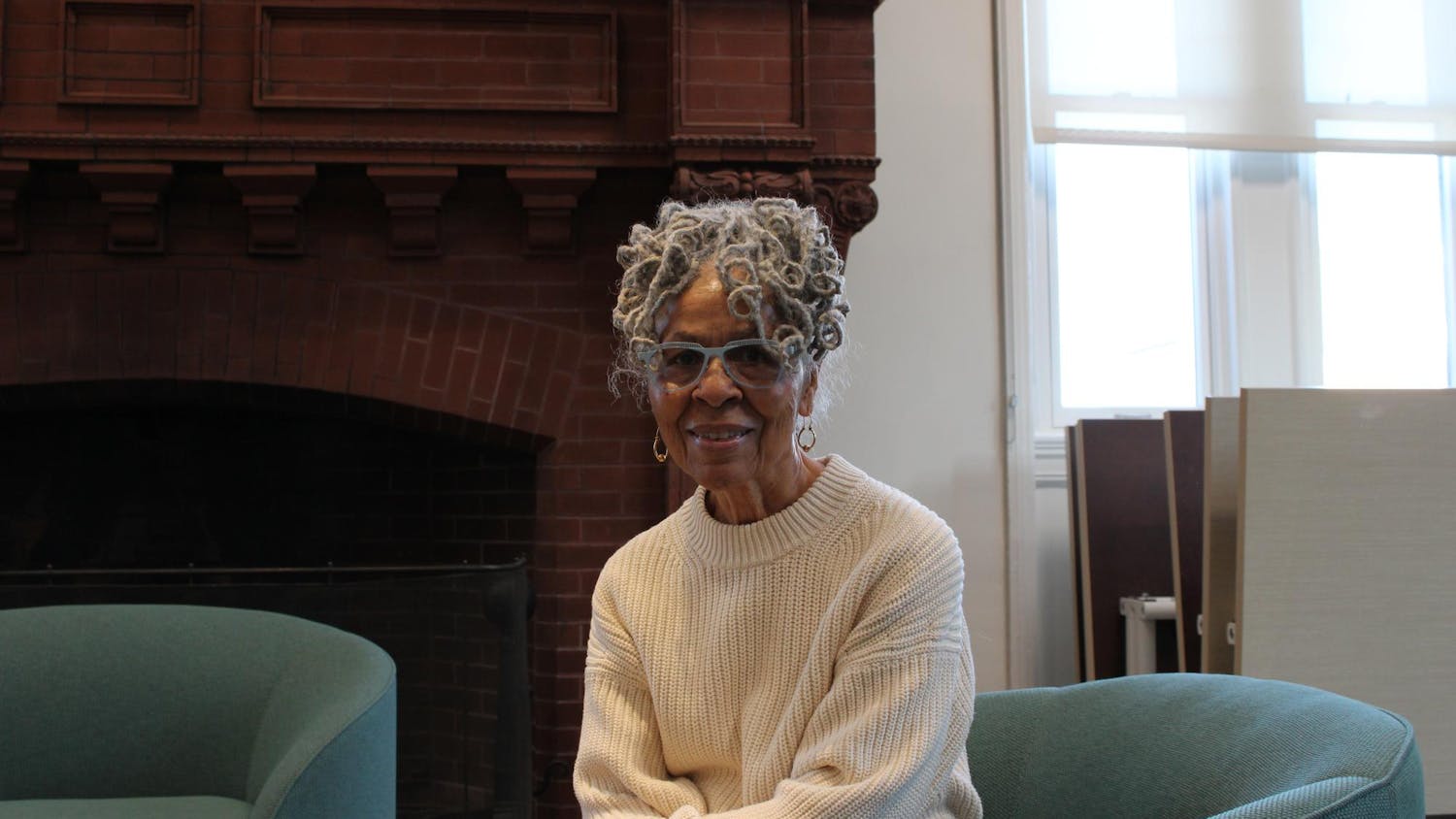The Climate and Development Lab, an environmentally savvy group of 15 undergraduate and graduate students, released the Brown Report from Durban today. The report brings to light the details of the lab's trip to the 2011 United Nations climate change negotiations in Durban, South Africa.
Many of the trip's 10 participants will present the report at the China, Climate Change, Security and the Developing World conference on campus this afternoon. The conference draws representatives from China, the United States, international organizations and environmental groups from many universities for a day of discussions and collaboration.
It provides the "wonderful opportunity for Brown students to get caught up on what's happening in the world of climate politics," said Spencer Fields '12, who attended the "eye-opening" Durban negotiations last year.
Discussion in Durban
"I learned more in a day of negotiations than I did in a semester of class," Fields said.
The annual UN-sponsored negotiations bring together politicians, scientists and other leaders to develop solutions and coordinated responses to global climate change.
"It's the biggest time of the year when international action can happen," said Graciela Kincaid '12, who attended the Durban negotiations. "It's the one time of the year when climate change gets a little bit of press."
Held last year from Nov. 28 to Dec. 10, the negotiations are a "critical moment" in deciding whether "humanity will fall to climate change," said J. Timmons Roberts, professor of sociology and environmental studies and director of Brown's Climate and Development Lab.
"Durban represented an important crossroads - whether we're going to have a serious treaty ... or an adequate one," he said.
For students involved with the lab, the negotiations offered a unique opportunity to "meet clear players" and conduct interviews for their research theses, Roberts added.
As an immersive learning experience, the negotiations offered "the chance to hear it from the horse's mouth," Fields said.
Bureaucratic shock
"The sheer bureaucracy of it all was mind-boggling," Fields said. Sitting in on a discussion between European Union representatives and delegates from the Least Developed Countries group, Fields said that the delegates went "back and forth, back and forth" over the wording in one paragraph of an agreement.
"They were talking right through each other," he said.
Staying in a small bed and breakfast outside Durban, the travelers would wake up early and "try to get there before everything started," Fields said. The conference occurred at a "huge venue" with a convention center and country-specific pavilions, which hosted side events.
One of the group's main activities was drafting a series of briefings for the Least Developed Countries group. "We hope we're having an impact," Fields said. "It's neat to be there and see whether we actually are."
Pinned with NGO badges, the students were allowed to observe public sessions of negotiations, though Kincaid said most of the action occurred "behind closed doors."
Observing the "excruciatingly slow process that the United Nations is" was a unique learning experience, Kincaid said, but the more meaningful interaction took place on the personal level. She asked a question to Jonathan Pershing, a top U.S. negotiator, who met with her afterward and shook her hand.
Kincaid said she was thrilled - "I'm a total nerd," she beamed.
A time for reflection
"Durban was a whirlwind," Fields said. "It just flew by in a split second."
Writing "The Brown Report from Durban" offered the chance to process what the group had learned and reflect on the progress made in Durban, he said.
The report's immediate purpose is to focus some of the discussion at today's conference, but it may be beneficial on a larger scale, Roberts said.
"There's a fairly limited number of groups globally that do a sort of wrap-up of what happened in these negotiations each year, so we hope to make some contribution to the discussion about what the talks meant," he said.
On a global scale, the Durban conference may have been a "turning point," Roberts said.
All of the represented countries agreed to a "last-minute, middle-of-the-night" commitment to reduce their emissions by 2020, Kincaid said.
"This is huge," Roberts said. The agreed outcome may finally allow the U.S. to "overcome its resistance to taking on a binding commitment," he said.
Querying Qatar
Roberts said he hopes to turn the trip into its own course and apply for formal funding through the University. While the Climate and Development Lab received some funding from the Watson Institute and the deans of graduate and undergraduate studies, students raised the bulk of the $2,200 per-student cost themselves.
"We went with the begging ball," Roberts said. "Lots of scrounging."
It remains undecided if students will attend the 2012 negotiations, held in Qatar.
For now, the Climate and Development Lab is working from its home base - writing for its blog, conducting research and trying to bring climate change into the general conversation.
Today's conference will examine the dynamics of China's environmental policy in the context of the country's rapid economic growth.
"The future of climate change globally really rests with China and how the United States responds to China," Roberts said. "The two sides need to understand each other better."
This understanding is "paramount, especially for seniors such as myself who are moving into the job world," Fields said. "Expecting to enter the market domestically and not having to have global awareness is just impossible."




